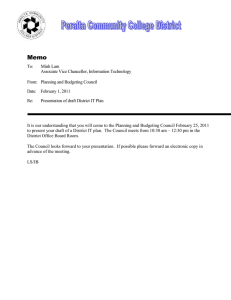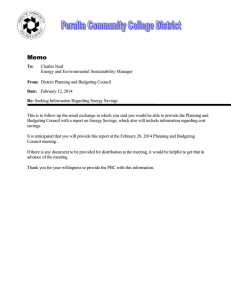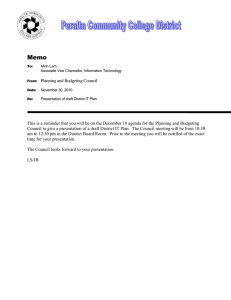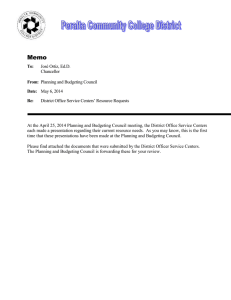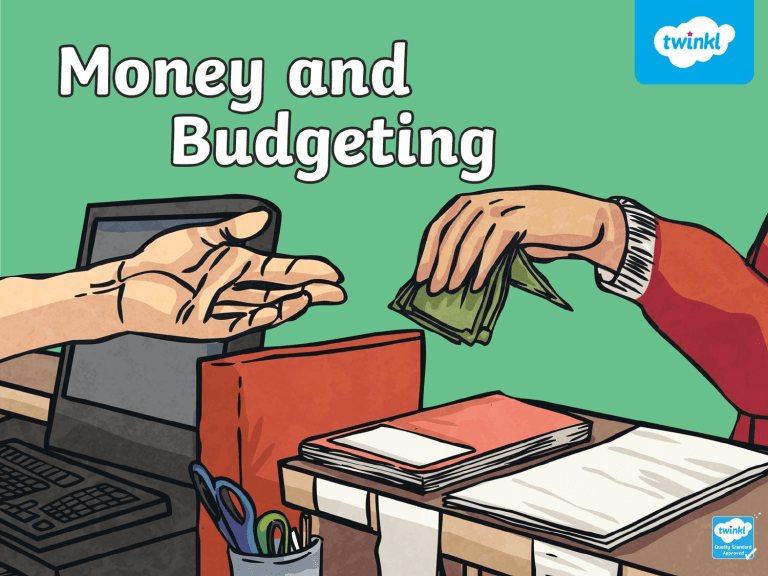
Money What is money? What does it allow us to do? Why does a currency work? Money is: a unit of account; a store of value; a method of exchange. Do These Make Good Money? Used in Arabia and Egypt as a sign of status. Used in parts of Asia, Africa and Oceania until the 19th century. Camels Shells Bottles of rum were used as a form of currency during the colonial period in Australia. Used to exchange things online since 2009. Rum Bitcoin Does the value of something change depending on who is using it or where? Notes and Coins Why are these good? What Makes Money Valuable? Early money had intrinsic value – e.g. a gold coin. Under the gold standard, money was ‘backed’ by gold. This was used in Australia until 1915. You could, in theory, take a bank note to the Commonwealth Bank (now known as the Reserve Bank of Australia) and demand gold in exchange. Now we have left the gold standard, and the value of the dollar is no longer tied to anything. It has no intrinsic value, it works on belief in the system. If enough people are willing to accept the dollar, it works as a currency. How is Money Created? Banks – control how much money is in circulation. • Minting – making physical coins. • Printing – making paper money. Key point: the bank •doesn’t keep all of thebanking money –put Fractional reserve i.e.in all of the time – it lendsborrowing it and grows – so if everyone’s and it lending. trust in the bank broke down and everyone tried to withdraw their money at once, the system would break. Example If you give the bank $100, then you have $100 saved. But the bank does not keep all of it, it can lend some of it. If the bank then lends $90 to someone else, then they have $90 in addition to your $100, so $190 in total. How is Money Created? What would happen if everyone could create their own money? Hyperinflation – there would be so much money that it would lose its value – and people’s belief in it would break down. For example, in Germany after the First World War people would take their wages home in wheelbarrows and children played with money because the government printed so much of it. Budgeting What is a budget? A plan for what you will spend – with a timescale. Why budget? • • • • • Puts you in control. Understand your spending better. It allows us to save for the future. Provides financial security. You can buy more of the things you like. How Do We Budget? Set Your Goals • Identify and list your sources of income. • Identify and list your expenses. • Adjust expenses, income or timescale to achieve your goal Budgeting Exercise What will you spend your money on? (e.g. phone, car, house) • How much do these things cost? • How much would you have to save to buy this? • How long would it take to save enough money? Example: Item income Amount +$2200 living -$750 food -$400 tax -$300 travel -$150 fun -$350 Leftover $250 • Income – from your job: $2,200 per month • Living – a shared house: $750 per month • Food – eating out once a week: $400 per month • Tax – council rates and utilities: $300 per month • Travel – public transport: $150 per month • Fun – hobbies & going out etc.: $350 per month Budgeting Exercise • How much per month in total? • What’s left over? • How many months will it take to save up to your target? What kind of spender are you? Do you spend first and save later or save first and spend later? Key point: you can adjust your income (harder), or how much you save and spend (easier) to achieve your targets more quickly. We recommend saving 20% of what you earn. Summary • Belief makes money valuable. • Set your goals and make a budget for them. • Save first, then spend.

